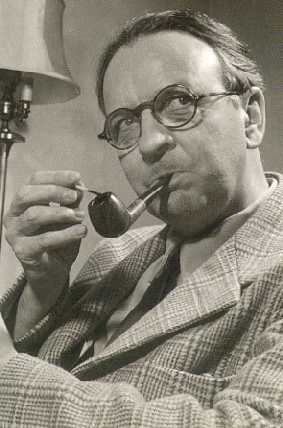Raymond Chandler (Raymond Chandler)

Novelist, Screenwriter. He is considered by many to be a founder, along with Dashiell Hammett, James M. Cain and other Black Mask writers, of the hard-boiled school of detective fiction. The character in his novels, Philip Marlowe, along with Hammett’s Sam Spade, is considered by some to be synonymous with “private detective,” both having been played on screen by Humphrey Bogart, whom many considered to be the quintessential Marlowe. Born in Chicago, Illinois his father was a railroad engineer and his mother as Irish immigrant. He spent his early years in Plattsmouth, Nebraska and after his alcoholic father abandoned the family, his mother moved them to London, England in 1900 to live with her mother. He was educated at Dulwich College in London and spent some of his childhood summers in Waterford, Ireland with his mother’s family. After attending Dulwich College, he spent time in Paris, France and Munich, Germany to improve his foreign language skills. In 1907 he was naturalized as a British subject in order to take the civil service examination, which he passed, and then took an Admiralty job, lasting just over a year. He then became a reporter for the Daily Express and the Bristol Western Gazette newspapers. An unsuccessful journalist, he published reviews and wrote romantic poetry. In 1912 he borrowed money from his Waterford uncle and returned to the US, visiting his aunt and uncle in Nebraska before settling in San Francisco, California for a time, where he took a correspondence bookkeeping course, finishing ahead of schedule. His mother joined him later that year and in 1913 they moved to Los Angeles, California. He performed odd jobs along the way in order to earn money. Once in Los Angeles, he found steady employment with The Los Angeles Creamery. In April 1917, when the US entered World War I, he enlisted in the Canadian Expeditionary Force, saw combat in the trenches in France with the Gordon Highlanders, and was undergoing flight training in the fledgling Royal Air Force (RAF) when the war ended in November 1918. He returned to the US and soon began a love affair with Cissy Pascal, a married woman 18 years his senior, and the step-mother of Gordon Pascal, with whom he had enlisted. Cissy obtained a divorce in 1920, but his mother disapproved of the relationship and refused to sanction the marriage. For the next four years he supported both his mother and Cissy and when his mother died in September 1923, he married Cissy the following February. In 1922 he began working as a bookkeeper and auditor for the Dabney Oil Syndicate and by 1931 he was a highly paid vice-president. However, his alcoholism, absenteeism, promiscuity with female employees, and threatened suicides all contributed to his dismissal a year later. In 1932 he turned to his latent writing talent to earn a living, teaching himself to write pulp fiction by studying the “Perry Mason” story formula of author Erle Stanley Gardner. His first professional work, “Blackmailers Don’t Shoot”, was published in Black Mask magazine in 1933 and his first novel, “The Big Sleep,” was published in 1939, featuring his famous Philip Marlowe detective character speaking in the first person. His second Marlowe novel, “Farewell, My Lovely” (1940), became the basis for three movie versions adapted by other screenwriters, including 1944’s “Murder My Sweet” (which marked the screen debut of the Marlowe character), starring Dick Powell. Literary success and film adaptations led to a demand for him to become a screenwriter, and he and Billy Wilder co-wrote “Double Indemnity” (1944), based on James M. Cain’s novel of the same name, and it was nominated for an Academy Award. In 1946 he produced his only original screenplay “The Blue Dahlia.” The same year he moved to La Jolla, California where he wrote three Philip Marlowe novels, “The Little Sister” (1949), “The Long Goodbye” (1953) and “Playback” (1958). In 1951 he collaborated on the screenplay of Alfred Hitchcock’s “Strangers on a Train,” an ironic fantasy murder story based on Patricia Highsmith’s novel of the same title, which he thought implausible. He clashed with Hitchcock to such an extent that they stopped talking. In 1954 his wife died after a long illness and he became depressed and resumed his drinking, and attempted suicide the following year. He neglected to inter her cremated remains and they sat for 57 years in a storage locker in the basement of Cypress View Mausoleum. After a respite in England, he returned to La Jolla and regained his US citizenship. His final Marlowe short story was entitled “The Pencil,” written around 1957, and it would later provided the basis of an episode for an HBO mini-series (1983 to 1986) entitled “Philip Marlowe, Private Detective” and starring Powers Boothe as Marlowe. In 1958 he was elected president of the Mystery Writers of America. He died of pneumonial peripheral vascular shock and prerenal uremia at the age of 70. In February 2011 his wife’s ashes were conveyed from Cypress View to Mount Hope, and interred under a new grave marker above his. All of his novels except for “Playback” have been made into motion pictures, some several times. His “Farewell, My Lovely,” “The Little Sister,” and “The Long Goodbye” are often considered his masterpieces. (bio by: William Bjornstad) Family links: Parents: Florence Dart Thornton Chandler (1864 – 1923) Spouse: Pearl Eugenie Hurlburt Chandler (1870 – 1954)* *Calculated relationship
Born
- July, 23, 1888
- USA
Died
- March, 03, 1959
- USA
Cemetery
- Mount Hope Cemetery
- California
- USA

